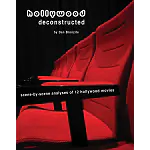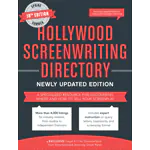Tag: plot point
Avoid Coincidence In Storytelling
Constructing an original, entertaining and intelligent plot is hard work, but that should not mean you should settle for the easy option when writing a screenplay. In fact, the…
Don’t Get Stuck on an Unresolved Plot Point
Writers’ Block — It’s a killer We’ve all been there, happily tapping away at the keyboard at our latest and greatest movie script in a creative stream of consciousness…



